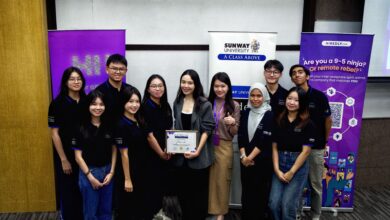Thammasat Warns of Economic and Mental Health Crisis as Thailand Becomes a “Complete Ageing Society”

Thammasat scholars project a 20-30% increase in elderly population and urge swift welfare and participatory care solutions.
Thailand is transitioning to an “Aged Society” with a significant portion of the population expected to be over 60, which will affect the workforce and economy. The elderly dependency ratio is projected to increase considerably, leading to greater financial and welfare responsibilities. A lack of working-age individuals and a growing number of older people without pensions are pressing issues. More elderly individuals are living independently, and they are increasingly vulnerable to health problems, including isolation, anxiety, and online fraud, necessitating prompt action.
Associate Professor Dr. Atchara Chalayonnawin, an expert in public policy and environmental policy as well as the Dean of the Faculty of Social Administration at Thammasat University, revealed that Thailand has fully entered a “complete aged society,” with the proportion of the population aged 60 and above reaching 20-30% of the total population.
This trend reflects a clear demographic change that has significant implications for the labor structure and the direction of economic growth in the long term. One of the evident impacts is the decreasing proportion of the working-age population, alongside an increasing dependency ratio of the elderly. It is anticipated that in the coming years, the proportion of the population aged 60 and over will significantly increase, impacting the labor structure and overall economic growth direction. An aging population will reduce the labor force participation and increase the demand for healthcare and welfare, requiring governments to adjust public budgets. This necessitates expanding support programs for the elderly and ensuring transparent and sustainable social security mechanisms. For instance, Switzerland has a tax system for future pension benefits for its citizens, which includes contributions from both the state and the private sector. Thailand should consider this model for its welfare system to effectively manage the transformations associated with an ageing population. Adapting businesses and integrating technology pose challenges as many elderly individuals lack access to new technologies, hindering technological development and application. Simultaneously, a significant number of elderly individuals lack the digital equipment (smartphones, internet) needed to access state welfare, causing them to fall out of the system and miss essential government support and care.
Associate Professor Dr. Acharra highlighted that Thailand’s ageing population and shrinking working-age demographic are causing labor shortages in key sectors, potentially increasing production costs and dependence on increasingly expensive foreign labor. Both legal and illegal foreign workers contribute to this, with the latter posing risks to national security and government control. The declining working-age population also hinders future human resource development and may worsen work quality of life. Conversely, the younger generation faces a growing responsibility for elder care, potentially causing intergenerational tension over resource allocation. Adapting to these demographic shifts requires fostering understanding between generations, starting in schools and workplaces, to build resilience and mitigate mental health risks. Promoting resilience, the ability to cope with change, is crucial for Thai society and needs immediate integration into the education system.
“Thammasat is committed to developing knowledge and skills that align with the context of an ageing society, emphasizing the integration of academic knowledge with social skills. This is to prepare students and entrepreneurs in all sectors to adapt creatively and sustainably amid the changing economic and social challenges,” Assoc. Prof. Dr. Atchara concluded.




